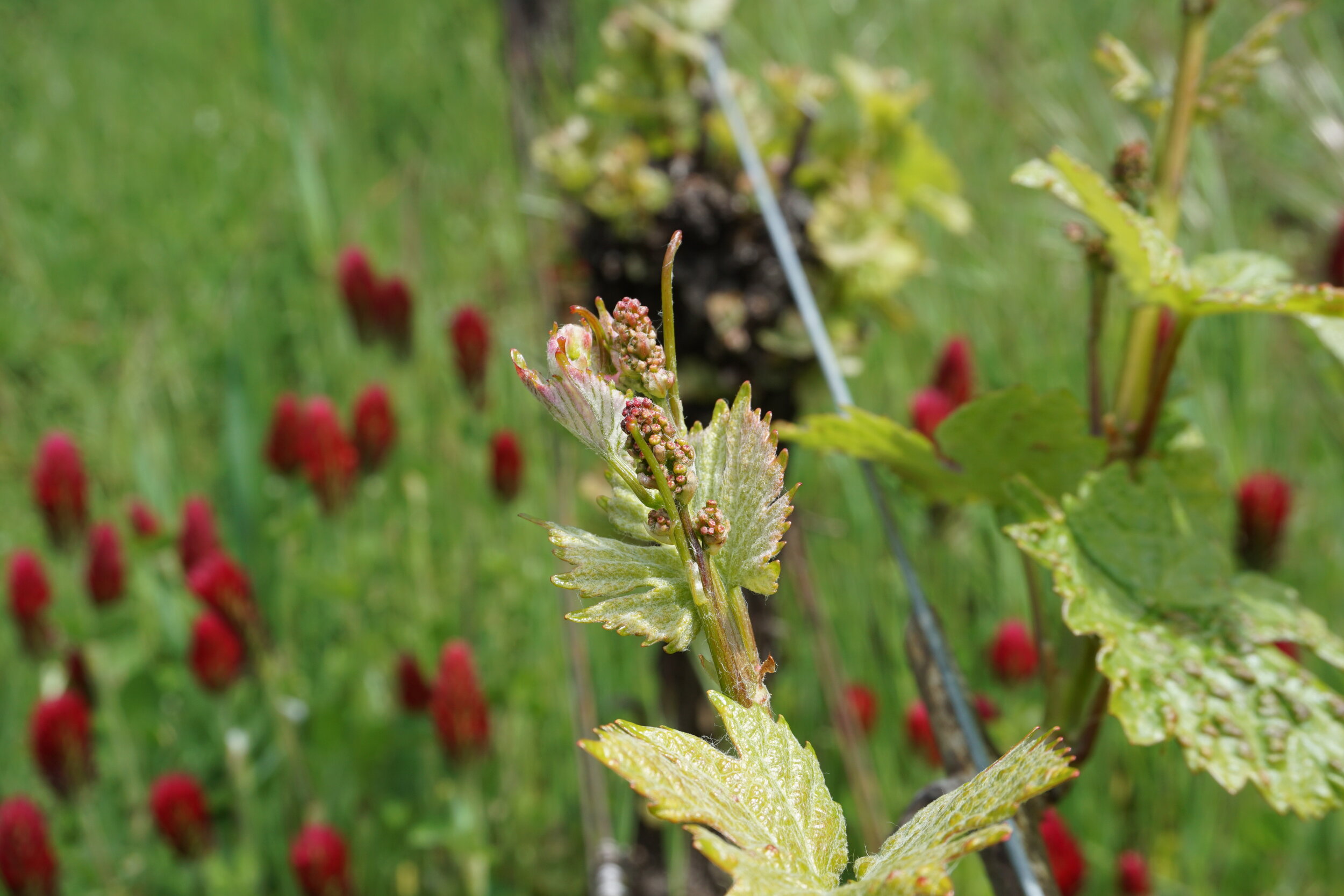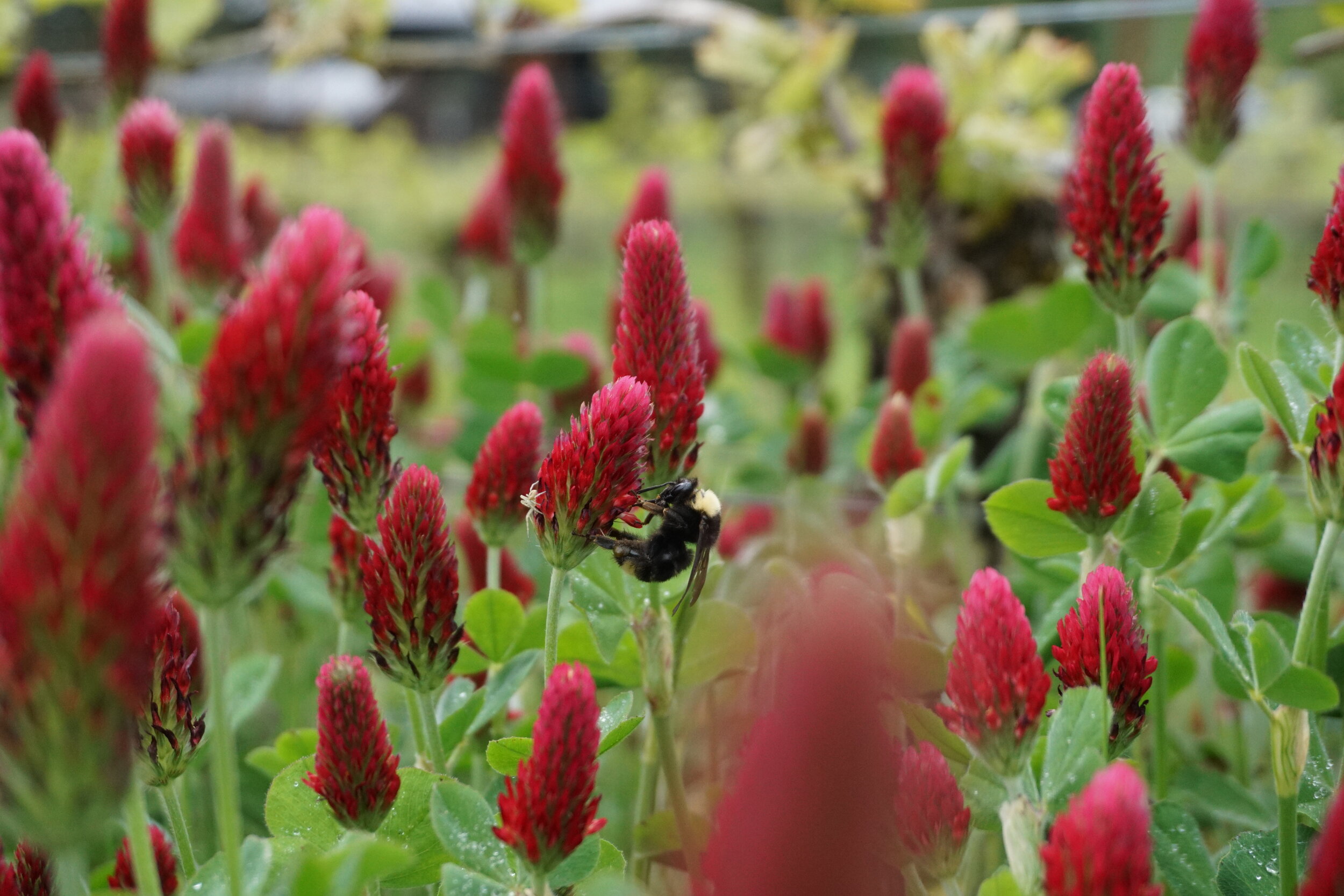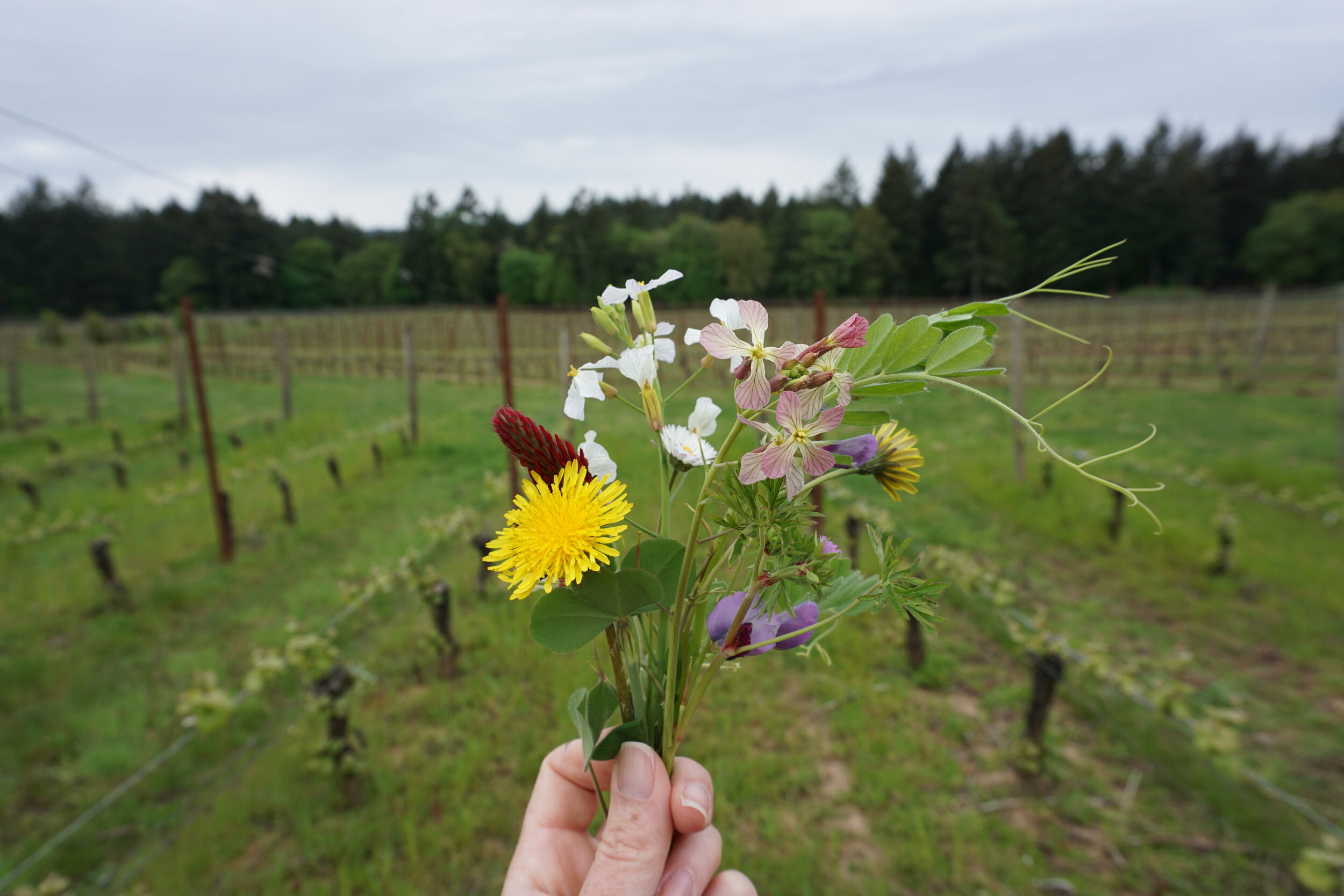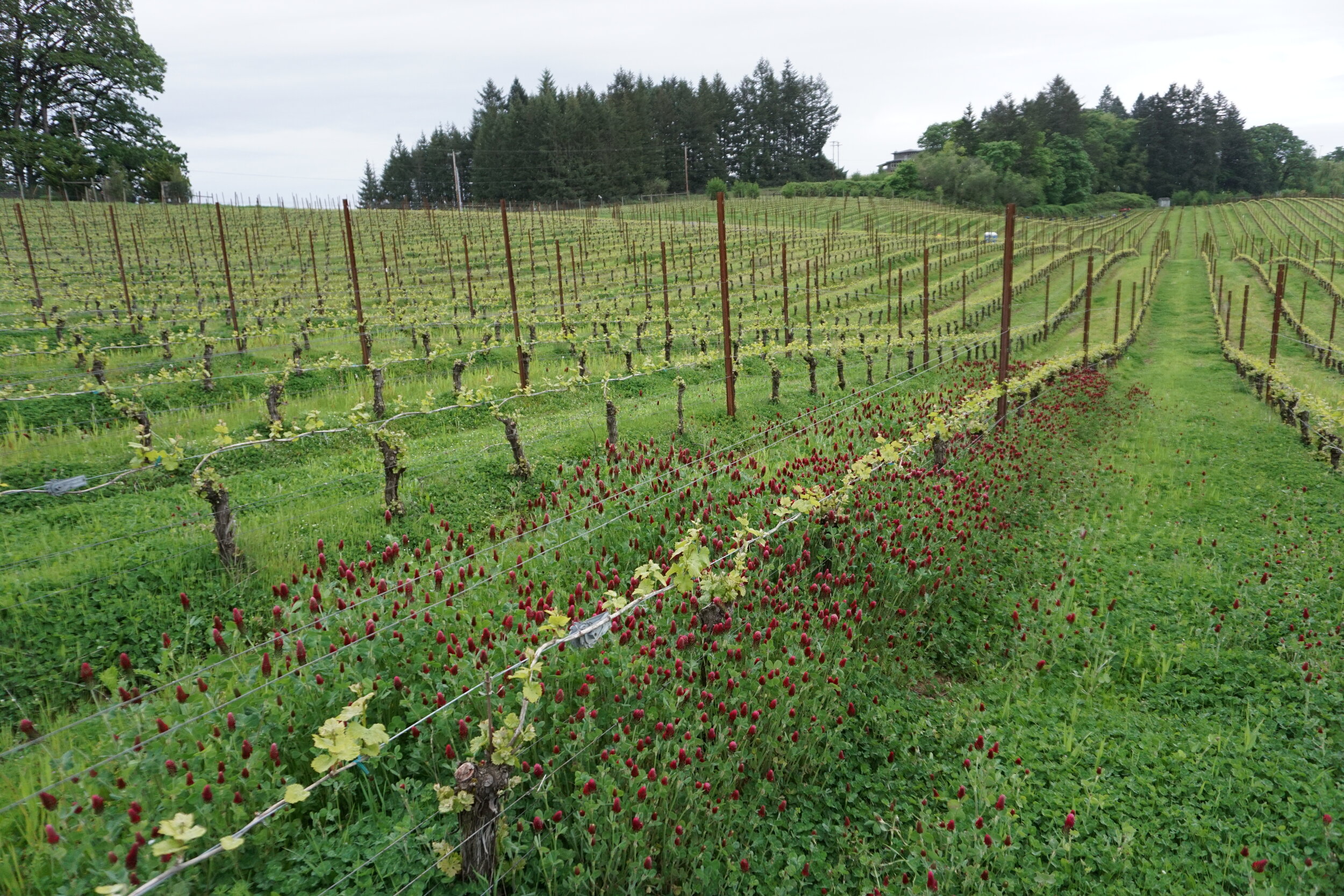Bee Friendly Vineyards | Trisaetum
What if bees can make a better wine? A more complex and interesting wine? These were questions Trisaetum winemaker and artist, James Frey, posed to me in the summer of 2019. To James, a wine is an expression of place. And just like any fine fermented food - the microbiology of the place does everything to influence the experience and the complexity of the end product. Mr. Frey’s thesis is that if you incorporate more bees, and other flitting, flying insects, into the system, they will help to “dust up” the natural yeasts, bacteria, and fungi in the vineyard which create great wine.
My interest was instantly peaked, as bees and their microbiome have been a small obsession of mine since I connected with Dr. Jenifer Walke, a professor and honey bee microbiologist, at Eastern Washington University. Dr. Walke and I are collaborating on the Regenerative Bee Pasture project to explore the microbiological connections between honey bees, ground nesting bees, pollen, and soil.
Have I mentioned that I love wine, and touring western wine countries is one of my favorite things?! Therefore, a vineyard, bee, microbiology, and wine project was an instant yes!
Another key component of our partnership is 1% for the Planet, a global movement inspiring businesses and individuals to support environmental solutions through memberships and everyday actions. BGO has been a nonprofit partner of 1% since 2012, and we’ve had nothing but one amazing experience after the next through this program. The business members we’ve worked with echo founder, Yvon Chouinard’s sentiments, ““We’re in business to save our home planet. We aim to use the resources we have - our business, our investments, our voice and our imaginations - to do something about it.”
Among the benefits – I’ve had a beer with singer, surfer, and philanthropist Jack Johnson at a 1% event, where we mused on about the energetic flow of gratitude and importance of local farms. I met some team members from Alice Water’s Edible Schoolyard Project, at a 1% networking event, and then had the opportunity to spend the day shadowing their bee program at Martin Luther King Jr. Middle School in Berkeley. We also received a game-changing donation from Avocado Green Mattress that enabled us to hyper-focus on bringing the Regenerative Bee Pasture project to the next level.
James Frey’s winery, Trisaetum, had just become 1% for the planet members, and were looking to establish a philanthropic relationship with a local nonprofit that works with bees and habitat. After a long conversation on the phone, buzzing with excitement and possibility, we decided this would be a perfect pairing.
But because I am a data-obsessed bee nerd, and James really wanted to ensure that he created the best possible bee/soil/wine grape/microbiome habitat, we agreed take our partnership beyond just a donor and recipient arrangement.
Not much is known about bees and wine grapes. Grapes are self-pollinating, so wine makers typically don’t pay much attention to bees in the vineyard, and most of what is known is anecdotal. National Farmers Union Historian, Tom Giessel, may have uncovered the best anecdote of all time (on bees and fermented juice) in the May 16, 1907, edition of “The Farmers Advocate” newspaper of Topeka, Kansas. The snippet “Bees Get Drunk” is posted below.
I will be traveling to Trisaetum multiple times a year to monitor bees in the vineyard, and make recommendations on bee habitat creation. James will track the intricacies of the wine itself. I don’t have the capacity to work with other vineyards in the area, but we see this as an opportunity to showcase what’s possible if any of the other 600 wineries in the area would like to follow suit. Over the next few years we will be teaching classes and workshops for both the Trisaetum staff, and other interested vineyard managers in the Willamette Valley.
There are 24,436 acres planted with wine grapes in the Willamette. How incredible would it be if each of these acres had more flowers and bees, healthier soil, and less chemicals?
Borrowing from the sentiments of Hopewell Vineyard’s Mimi Casteel, we also see this as an opportunity to reach out to the public that visits the vineyard’s tasting room with information on the importance of bees, healthy soil, and regenerative agriculture. Staying close to the heart of Trisaetum, we will be creating art displays with pinned bee collections and pressed bee-friendly flowers from the site. Our goal is to create educational and inspirational conversation starters around important agricultural topics.
When you find yourself in Oregon’s wine country, please do stop by the tasting room at Trisaetum - bee collections will be coming later in 2021 (but be mindful of Covid-19 restrictions, see the website for updates). If you’d like to follow along with our project’s progress and upcoming educational opportunities, find me on Facebook and Instagram @sarahbeegirl and use the hashtag #beefriendlyvineyards and subscribe to my newsletter (subscription form at the bottom of this page).
















